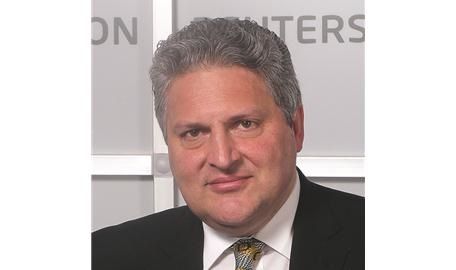WHAT A NIGHT! IFR’s 21st annual gala awards event, which took place last Wednesday in London, was another remarkable success that hopefully put a dent in the doom, gloom and depression the markets have been living over the past few weeks.
The mood in the room was certainly upbeat as we celebrated the successes and achievements of another great year. As I said in my opening address, we shouldn’t get too gloomy. “Uncertainty, volatility and instability,” I noted Wednesday, “are the solid building blocks that enable investment banks to bring to bear innovative thinking, rigorous structuring and bold execution to overcome adversity and create client solutions”.
As the investment banking industry shifts towards optimising operational client-service models, a touch of market adversity or distress can bring out the best in terms of progressive and lateral applied thinking.
Our annual fundraising effort in support of Save the Children (STC) was a high point of the evening. Attendees at the event donated a staggering £1.2m over the eight minutes of interactive bidding. Total donations since IFR began its partnership with STC are now in excess of £24.5m. That’s simply incredible. Special thanks this year go to UBS, IFR’s Bank of the Year, along with the UBS Optimus Foundation for their combined and wonderful donation of £800,000.
Optimus is the in-house philanthropic channel for UBS client funds that shares many of STC’s goals. Last year, the foundation was the investor at the centre of the innovative Development Impact Bond (DIB) for the Educate Girls project that will benefit 18,000 girls in Rajasthan, India. Beyond the specific project benefits, that debut DIB was intended to create a solid proof-of-concept and a basis for future funding of this nature. The Optimus partnership with STC (of which, for transparency, I’m a proud vice president) should lead to some great outcomes.
ANDREA ORCEL, PRESIDENT of UBS’s investment bank, graced our event and accepted the Bank of the Year trophy. In transforming the investment bank over the past three years, Orcel and group CEO Sergio Ermotti deserve credit for creating a solid client-driven franchise that, absent some extraordinary or unforeseen disruptive events, looks sustainable and one that’s been generating some great returns in the core businesses they’ve chosen to compete in.
Oddly enough (or perhaps not so odd …) now that Orcel has steered UBS’s IB into calmer waters and the current phase of the group’s evolution is much less today about fixing and more about the important but less dramatic optimisation and unlocking potential amid an evolving competitive landscape, the noise about Orcel’s future grows ever louder.
“Isn’t Andrea heading to UniCredit?” someone texted me Thursday morning. For the sake of more transparency, I sat next to Orcel at the IFR dinner and we didn’t discuss this at all, but it’s clear it’s on people’s minds. The UniCredit rumour has been doing the rounds for years but seven separate elements have prompted me to recycle it now.
The first is about where UBS is in its strategy and the fact that the intensive re-working that’s been in play since 2012 has kind of reached an end; in part it’s also because Orcel has made it quite clear through broad media coverage that he’d eventually like to run something as CEO; and it’s partly because the probability is growing that UniCredit shareholders will demand Federico Ghizzoni’s head as his strategy stumbles.
Thinking about Ghizzoni’s replacement, it’s also clear that what’s required is a more aggressive and pointed approach than the current CEO has been able to engender to date and one that relies not on consensus but on taking tough decisions, so is perfectly suited to someone who’s already restructured and rebuilt something – and someone who relishes the adrenalin rush and the theatre of that. There’s the Italian connection, of course, and the fact that Orcel is intimately familiar with UniCredit, having been a close adviser to former CEO Alessandro Profumo (in fact Orcel was rumoured to have been a strong candidate to replace Profumo ahead of Ghizzoni back in 2010).
The seventh element was purely a function of fortuitous timing. Berenberg (the break-up kings of the analyst world) just happened to issue a note on January 29. In summary, they reckon the bank’s updated strategy is likely to result in failure; that revenue growth targets are unrealistic; cost-cutting doesn’t go far enough; and loan-loss provisioning policy is unrealistic.
They hope (my italics and underlining) that what they see as an inevitable capital-raise to plug a €10bn shortfall will lead to a change in management and break-up of the business as a pre-condition to unlocking shareholder value. Love it.
I’ve similarly called for something to happen at UniCredit and have called time on Ghizzoni’s tenure; most recently in November in a piece entitled: UniCredit: Three-year restructuring plans – or the art of bait-and-switch. “Is it time for a UniCrexit?” I asked.
This is, of course, all wildly speculative – and there are other names in the UniCredit frame – so it could well be a case of 2 + 2 = 22. And to be crystal clear, my narrative is clearly much more about UniCredit than it is about UBS and its remarkable achievements. But doesn’t it just make fabulous sense and doesn’t it sound compelling?
In summary, I can easily see Orcel at the helm of UniCredit (just, incidentally, as I can see Orcel’s former Merrill colleague Greg Fleming and until recently head of wealth management at Morgan Stanley at the helm of BNY Mellon).
